Project Update
Voltalia would like to thank the local community for attending the consultation events at Kilmore and Kilbride, Taynuilt, Connel and North Connel. We held several events in October 2023 and February 2024 where we received constructive feedback and had great discussions with the local community.
Voltalia submitted a planning application in November 2024 to the Scottish Government and further details, including the application documents, can be found below. As the proposed development will have a total capacity of over 50MW it will be determined by the Scottish Government’s Energy Consents Unit (ECU) under Section 36 of the Electricity Act (1989), with Argyll and Bute Council as a statutory consultee.
Further Environmental Information (FEI) to support the application has now been prepared and submitted, including revisions to the internal access tracks and responses to a number of consultees. Further details, including the application documents, can be found below.
A Frequently Asked Questions (FAQs) document has been prepared and can be found below. The document addresses a number of the comments which have arisen to date. If you have any questions relating to the proposal, please do not hesitate to contact us via email: cruach-clenamacrie@voltalia.com

Project Status
Planning submitted

Installed Capacity
Up to 45MW Wind
Up to 20MW BESS

No. of Turbines
Up to six turbines with a blade tip height up to 200m

Operational Period
Up to 50 years

Energy Generation
Powering up to 48,733 homes
Application Submitted
Voltalia have submitted a Section 36 application for Cruach Clenamacrie Wind Farm to the Scottish Ministers for determination. Further Environmental Information (FEI) has now been submitted to the Scottish Ministers, which includes revisions to the internal access track layout, information in response to the Scottish Environmental Protection Agency consultation, an update to the cumulative Noise, Heritage and Landscape and Visual assessments and further clarifications relating to the Proposed Development.
Representations to the application may be submitted to Scottish Ministers following the instructions outlined within the “FEI – Application Notice” document below. All representations should be received no later than 13th October 2025, although Scottish Ministers may consider representations received after this date. For further details, please see the “FEI – Application Covering Letter” and “FEI – Application Notice” below.
The FEI documents alongside all the application and EIA documents are available for public inspection, free of charge, under the section below titled “Application Documents”. The documents can also be viewed on the Scottish Government Energy Consents website at www.energyconsents.scot under application reference ECU00004841.
The FEI and EIA documents are also available for public inspection in person, free of charge at:
Oban Public Library
Albany Street, Oban, PA34 4AL
Opening Times:
Sunday & Monday: Closed
Tuesday & Wednesday: 9:30 am – 16:30 pm
Thursday: 9:00 am – 18:00pm
Friday & Saturday: 9:30 am – 13:00pm
Copies of the FEI Report may be obtained from Green Cat Renewables Ltd (telephone: 0131 541 0060 or email: info@greencatrenewables.co.uk) for £150 per copy in hard copy and £20 on USB
Application Documents
Non-Technical Summary
Planning and Renewable Energy Statement
Pre-Application Consultation Report
EIA Report - Volume 1
Volume 1 – Chapters
- Volume 1 – Chapter 1 – Introduction
- Volume 1 – Chapter 2 – Planning and Renewable Energy Policy
- Volume 1 – Chapter 3 – EIA Methodology
- Volume 1 – Chapter 4 – Assessment of Alternatives
- Volume 1 – Chapter 5 – Project Description
- Volume 1 – Chapter 6 – Landscape and Visual Impact Assessment
- Volume 1 – Chapter 7 – Cultural Heritage and Archaeology
- Volume 1 – Chapter 8 – Noise
- Volume 1 – Chapter 9 – Geology, Hydrogeology, Hydrology and Soils
- Volume 1 – Chapter 10 – Ecology
- Volume 1 – Chapter 11 – Ornithology
- Volume 1 – Chapter 12 – Transport and Access
- Volume 1 – Chapter 13 – Forestry
- Volume 1 – Chapter 14 – Aviation
- Volume 1 – Chapter 15 – Shadow Flicker
- Volume 1 – Chapter 16 – Telecommunications and Infrastructure
- Volume 1 – Chapter 17 – Climate Change and Carbon Balance
- Volume 1 – Chapter 18 – Summary of Mitigation
EIA Report - Volume 2
Volume 2 – Figures
- Volume 2 – Chapter 1 – Figure 1.1 – Site Location Plan
- Volume 2 – Chapter 4 – Figures
- Volume 2 – Chapter 5 – Figures
- Volume 2 – Chapter 6 – Figures
- Volume 2 – Chapter 6 – Visuals – VP 1-5
- Volume 2 – Chapter 6 – Visuals – VP 6-10
- Volume 2 – Chapter 6 – Visuals – VP 11-15
- Volume 2 – Chapter 6 – Visuals – VP 16-20
- Volume 2 – Chapter 7 – Figures and Visuals
- Volume 2 – Chapter 8 – Figures
- Volume 2 – Chapter 9 – Figures
- Volume 2 – Chapter 10 – Figures
- Volume 2 – Chapter 11 – Figures
- Volume 2 – Chapter 13 – Figures
- Volume 2 – Chapter 15 – Figure 15.1 – Shadow Flicker Study Area
EIA Report - Volume 3
Volume 3 – Appendices
- Volume 3 – Appendix 1.1 – Scoping Report
- Volume 3 – Appendix 1.2 – Scoping Opinion
- Volume 3 – Appendix 5.1 – Socio-Economic Statement
- Volume 3 – Appendix 6.1 – Methodology
- Volume 3 – Appendix 6.2 – Illustrative Views
- Volume 3 – Appendix 6.4 – Residential Visual Amenity Assessment
- Volume 3 – Appendix 7.1 – Gazetteer
- Volume 3 – Appendix 7.2 – Setting Assessment
- Volume 3 – Appendix 7.3 – Plates
- Volume 3 – Appendix 9.1 – Peat Slide Risk Assessment
- Volume 3 – Appendix 9.2 – Outline Peat Management Plan
- Volume 3 – Appendix 9.3 – Groundwater-Dependent Terrestrial Ecosystems Assessment
- Volume 3 – Appendix 9.4 – Drainage Impact and Watercourse Crossing Assessment
- Volume 3 – Appendix 9.5 – Borrow Pit Assessment
- Volume 3 – Appendix 10.1 – Baseline Habitat Survey Report
- Volume 3 – Appendix 10.2 – Protected Species Survey Report
- Volume 3 – Appendix 10.3 – Bat Static Survey Report
- Volume 3 – Appendix 10.4 – Fish and Habitat Survey Report
- Volume 3 – Appendix 10.5 – Outline Habitat Management Plan
- Volume 3 – Appendix 10.6 – Deer Management Plan
- Volume 3 – Appendix 10.7 – Habitat Regulations Appraisal
- Volume 3 – Appendix 11.1 – Ornithological Technical Report
- Volume 3 – Appendix 11.3 – Bird Protection Plan
- Volume 3 – Appendix 12.1 – Transport Assessment – Part 1
- Volume 3 – Appendix 12.1 – Transport Assessment – Part 2
- Volume 3 – Appendix 12.1 – Transport Assessment – Part 3
- Volume 3 – Appendix 12.1 – Transport Assessment – Part 4
- Volume 3 – Appendix 12.1 – Transport Assessment – Part 5
- Volume 3 – Appendix 17.1 – Carbon Calculator Inputs and Results
Additional Information Documents
FEI Report - Volume 1
FEI Report - Volume 2
Volume 2 – Figures and Visualisations
- Additional Information – Volume 2 – Chapter 3 – Figure 3.1
- Additional Information – Volume 2 – Chapter 3 – Figure 3.2
- Additional Information – Volume 2 – Chapter 3 – Figure 3.3
- Additional Information – Volume 2 – Chapter 3 – Figure 3.4
- Additional Information – Volume 2 – Chapter 3 – Figure 3.5
- Additional Information – Volume 2 – Chapter 3 – Figure 3.6
- Additional Information – Volume 2 – Chapter 3 – Figure 3.7
- Additional Information – Volume 2 – Chapter 3 – Figure 3.8
- Additional Information – Volume 2 – Chapter 3 – Figure 3.8 a-f
- Additional Information – Volume 2 – Chapter 3 – Figure 3.8 g-m
- Additional Information – Volume 2 – Chapter 3 – Figure 3.9
- Additional Information – Volume 2 – Chapter 3 – Figure 3.10
- Additional Information – Volume 2 – Chapter 3 – Figure 3.10 a-g
- Additional Information – Volume 2 – Chapter 3 – Figure 3.10 h-m
- Additional Information – Volume 2 – Chapter 3 – Figure 3.11
- Additional Information – Volume 2 – Chapter 3 – Figure 3.12
- Additional Information – Volume 2 – Chapter 3 – Figure 3.13
- Additional Information – Volume 2 – Chapter 3 – Figure 3.14
- Additional Information – Volume 2 – Chapter 4 – Figure 4.1
- Additional Information – Volume 2 – Chapter 4 – Figure 4.2
- Additional Information – Volume 2 – Chapter 4 – Figure 4.3
- Additional Information – Volume 2 – Chapter 4 – Viewpoint 1
- Additional Information – Volume 2 – Chapter 4 – Viewpoint 2
- Additional Information – Volume 2 – Chapter 4 – Viewpoint 3
- Additional Information – Volume 2 – Chapter 4 – Viewpoint 4
- Additional Information – Volume 2 – Chapter 4 – Viewpoint 5
- Additional Information – Volume 2 – Chapter 4 – Viewpoint 6
- Additional Information – Volume 2 – Chapter 4 – Viewpoint 7
- Additional Information – Volume 2 – Chapter 4 – Viewpoint 8
- Additional Information – Volume 2 – Chapter 4 – Viewpoint 9
- Additional Information – Volume 2 – Chapter 4 – Viewpoint 10
- Additional Information – Volume 2 – Chapter 4 – Viewpoint 11
- Additional Information – Volume 2 – Chapter 4 – Viewpoint 12
- Additional Information – Volume 2 – Chapter 4 – Viewpoint 13
- Additional Information – Volume 2 – Chapter 5 – Figure 5.1
- Additional Information – Volume 2 – Chapter 5 – Figure 5.2
- Additional Information – Volume 2 – Chapter 5 – Figure 5.3
- Additional Information – Volume 2 – Chapter 5 – Figure 5.4
- Additional Information – Volume 2 – Chapter 5 – Figure 5.6
- Additional Information – Volume 2 – Chapter 5 – Figure 5.7
- Additional Information – Volume 2 – Chapter 5 – Figure 5.8
- Additional Information – Volume 2 – Chapter 5 – Figure 5.9
- Additional Information – Volume 2 – Chapter 5 – Figure 5.10
- Additional Information – Volume 2 – Chapter 5 – Figure 5.11
- Additional Information – Volume 2 – Chapter 5 – Figure 5.12
- Additional Information – Volume 2 – Chapter 5 – Figure 5.13
- Additional Information – Volume 2 – Chapter 5 – Figure 5.14
- Additional Information – Volume 2 – Chapter 5 – Figure 5.15
- Additional Information – Volume 2 – Chapter 5 – Figure 5.16
- Additional Information – Volume 2 – Chapter 5 – Figure 5.17
- Additional Information – Volume 2 – Chapter 5 – Figure 5.18
- Additional Information – Volume 2 – Chapter 5 – Figure 5.19
- Additional Information – Volume 2 – Chapter 5 – Figure 5.20
- Additional Information – Volume 2 – Chapter 5 – Figure 5.21
- Additional Information – Volume 2 – Chapter 5 – Figure 5.22
- Additional Information – Volume 2 – Chapter 5 – Figure 5.23
- Additional Information – Volume 2 – Chapter 5 – Figure 5.24
- Additional Information – Volume 2 – Chapter 5 – Figure 5.25
- Additional Information – Volume 2 – Chapter 5 – Figure 5.26
- Additional Information – Volume 2 – Chapter 5 – Figure 5.27
- Additional Information – Volume 2 – Chapter 5 – Figure 5.28
- Additional Information – Volume 2 – Chapter 5 – Figure 5.29
- Additional Information – Volume 2 – Chapter 5 – Figure 5.30
- Additional Information -Volume 2 – Chapter 6 – Figure 6.1
FEI Report - Volume 3
Volume 3 – Appendices
- Additional Information – Volume 3 – Appendix 2.1 – Response to Woodland Trust
- Additional Information – Volume 3 – Appendix 4.1 – RVAA
- Additional Information – Volume 3 – Appendix 4.1 – RVAA Figure 1
- Additional Information – Volume 3 – Appendix 4.1 – RVAA Figure 2
- Additional Information – Volume 3 – Appendix 6.1 – Apportioned Noise Limits
- Additional Information – Volume 3 – Appendix 7.1 – Updated PSRA Figures Part 1
- Additional Information – Volume 3 – Appendix 7.1 – Updated PSRA Figures Part 2
- Additional Information – Volume 3 – Appendix 7.1 – Updated PSRA Figures Part 3
- Additional Information – Volume 3 – Appendix 7.1 – Updated PSRA Figures Part 4
- Additional Information – Volume 3 – Appendix 8.1 – Invertebrate Response
Public Consultation
Our consultation events in October 2023 and February 2024 were an important opportunity for us to receive your feedback and we would like to express our thanks to everyone who took the time to share their comments.
The feedback that we received played a crucial role in informing the final design and the main themes from the events are summarised below:
- Project Design – Clarity on the final design and distinguishing this project from nearby developments.
- Community Benefit – Ensuring the project provides environmental, social and economic benefits to the community.
- Responsible Development – Mitigating against disruption for both the community and local wildlife, in any future construction.
- Bigger Picture – Evidencing the need for renewable development in the journey to Net Zero.
Project Benefits
As a renewable energy developer and provider, we want each of our projects to not only help improve the global environment by reducing carbon emissions but also help to improve the local environment.
We are committed to providing environmental, social and economic benefits to the communities where our projects are based and encourage communities to engage with us on their needs and aspirations.
Why wind energy?
Scotland has set the ambitious target of reaching Net Zero by 2045. Wind energy will play a critical role in meeting these targets, with the Scottish Government setting the ambition to deploy a minimum of 20GW of onshore wind in Scotland by 2030.
Community Benefit
Voltalia is committed to providing environmental, social and economic benefits to the communities which host our projects and encourage communities to engage with us on their needs and aspirations.
We are proposing to establish a Community Benefit Fund in line with the Scottish Government’s Good Practice Principles, currently at a value of £5,000 per MW (index linked). We are keen to work with the local community to shape the fund and focus on local priorities.
Local Business Partnerships
If consented, the project will create significant opportunities for local businesses through Construction and Operation. This will include; accommodation providers, manufacturers and suppliers, contractors, and tradespeople across a wide range of specialties, including construction, groundworks, landscaping, and plant hire.
If you would like to be added to our local supplier database, please email cruach-clenamacrie@voltalia.com.
Community Liaison Group
We would like to engage with the community in the most effective way as the project progresses. A Community Liaison Group (CLG) has been established to provide a platform where local representatives can discuss and share information, while also establishing a reliable channel of communication among Voltalia, the local community, and stakeholders.
The first CLG meeting was held on Thursday 29th August and was well attended by local representatives. We will now look to hold the next meeting in early 2025.
Contact us
Please get in contact via cruach-clenamacrie@voltalia.com if you have any questions, or would like to know more about the project.
We would particularly love to hear from local residents, groups and businesses on how the project could benefit you.
You can also submit feedback or your questions on the project through our engagement platform which can be accessed by clicking on, or scanning the QR code below.
About Voltalia
Founded in 2005, Voltalia is an experienced global renewable energy developer and Independent Power Producer developing, constructing, and operating solar, wind, hydro, biomass, and storage projects.
Please visit our website to find out more at www.voltalia.com
As a mission-driven company*, Voltalia is fully committed to its purpose to improve the global environment whilst fostering local development. All of our sites will contribute towards addressing national and local electricity needs by generating an affordable and renewable source of clean energy.
* Voltalia became a Mission-driven Company in May 2021. The company has registered in its by-laws a purpose and environmental and social objectives. Find out more on the Voltalia website.

